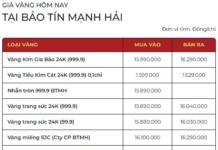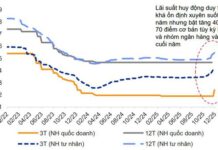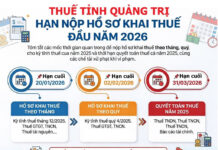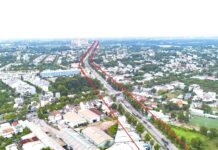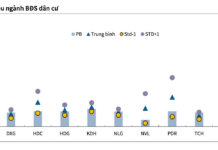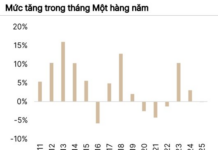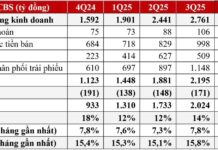Proposed solutions to obstacles in the 2024 Land Law
Ho Chi Minh City Real Estate Association (HoREA) has recently submitted a proposal to address practical obstacles and turn land resources into a driving force for socio-economic development, while suggesting important additions to the 2024 Land Law draft.
Chairman of HoREA, Le Hoang Chau, commended the draft’s new provisions, including the addition to Clause 34 of Article 79, which allows the state to reclaim the remaining land if the investor has agreed with at least 75% of the area or number of land users in socio-economic development projects.
Mr. Chau pointed out that many projects have been left unfinished for years due to the inability to agree on the remaining land, resulting in waste and stalled capital. HoREA proposes adding a condition of “having agreed on 50% of the land area” to increase investor responsibility and prevent low resettlement rates.
Another notable suggestion pertains to Articles 159 and 160 regarding land price tables and adjustment coefficients. The draft proposes that land price tables be constructed every five years, effective from the first of January of the first year, with possible adjustments made during the year if necessary. HoREA considers this a “change in thinking,” enabling the state to proactively determine land prices in the primary market and avoid a reactive position.
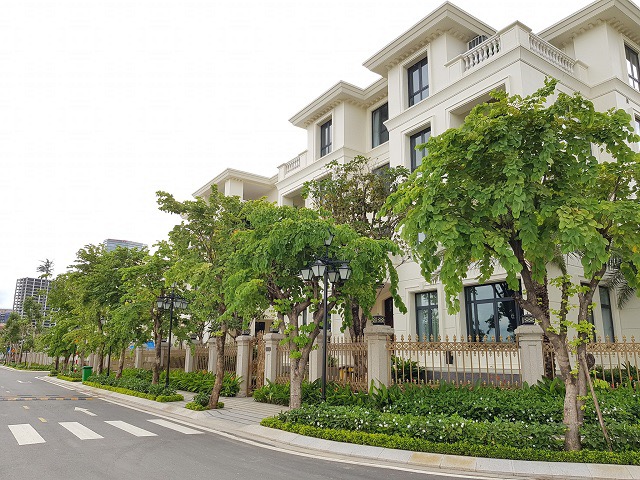
Addressing obstacles in the Land Law will resolve issues for many unfinished projects (illustrative image)
Recommendations to retain two crucial contents in the 2024 Land Law draft
Notably, HoREA proposes retaining two crucial contents that appeared in the July 28, 2025, draft but were removed from the latest version.
Firstly, they suggest amending Clause 1, 3, and 6 of Article 127 (Clause 31 of the old draft) to allow investors to receive land-use rights for commercial housing projects. HoREA argues that without this legalization, there would be a “legal vacuum” and unequal access to land. The current law only permits the receipt of “residential land” with a maximum limit of 400 square meters, which is impractical for large-scale projects spanning hundreds of hectares, limiting companies to small-scale developments and hindering urban renewal efforts.
HoREA’s proposal aligns with Resolution 66-NQ/TW of the Political Bureau and includes amendments to Article 122 to ensure that land lease and rental conditions are realistic.
Secondly, they propose amending Point d, Clause 2, Article 257 (Clause 62 of the old draft) to abolish the regulation on supplementary land use fee and land rent payment for the uncalculated period, calculated at 5.4% per year according to Decree 103/2024/ND-CP. HoREA believes that this regulation contradicts Clause 2, Article 55 of the Law on Issuing Legal Documents, as it imposes new legal responsibilities for past actions. As previous Land Laws did not contain this provision, its application is considered a “new responsibility” for past actions. HoREA recommends reducing the rate to 0.5% per year, arguing that land valuation is the state’s prerogative, and there is no “mixed fault” on the part of enterprises.
Additionally, HoREA suggests including “foreign individuals” among land users (Clause 8, Article 4, and Point h, Clause 1, Article 28) to align with the 2023 Housing Law. They also propose retaining amendments to Clause 10, Article 13, and Clause 2, Article 94, regarding infrastructure cost deduction and compensation coefficients, and adding a mechanism for refunding costs based on the land price table when agreeing on land-use rights. While enterprises may incur a 30-40% cost burden, this proposal streamlines procedures and fosters transparency in project implementation.
“A Proposal for a Self-Declaration and Self-Payment System for Land Use Charges”
The Ho Chi Minh City Institute of Resource Economics and Environment has proposed that businesses be allowed to self-declare and pay land use fees independently. This proposal aims to streamline procedures, reduce arrears, and boost investment activities by granting businesses autonomy in declaring and paying land use fees.
Reforming the Land Law: Multiple Localities Petition to Remove the Proposed Commune-Level Land-Use Planning Requirement
Are there any other adjustments you would like to make to this text?
“When providing feedback on the revised Land Law, several northern localities proposed removing the suggested period for communal-level land-use planning. They argued that instead of having a fixed planning period, it would be more efficient to implement a five-year communal land-use plan that can be adapted and adjusted as needed.”
Proposed Land Revocation for Businesses Unable to Reach an Agreement with Locals
According to experts, the proposed policy of the State supporting the acquisition of the remaining 25% of land area needed for clearance once an enterprise has negotiated with landowners to obtain 75% consent, is a positive step towards unblocking stalled projects. However, the “75% threshold” should be flexible during the land acquisition process to prevent social backlash or inhumane evictions.






